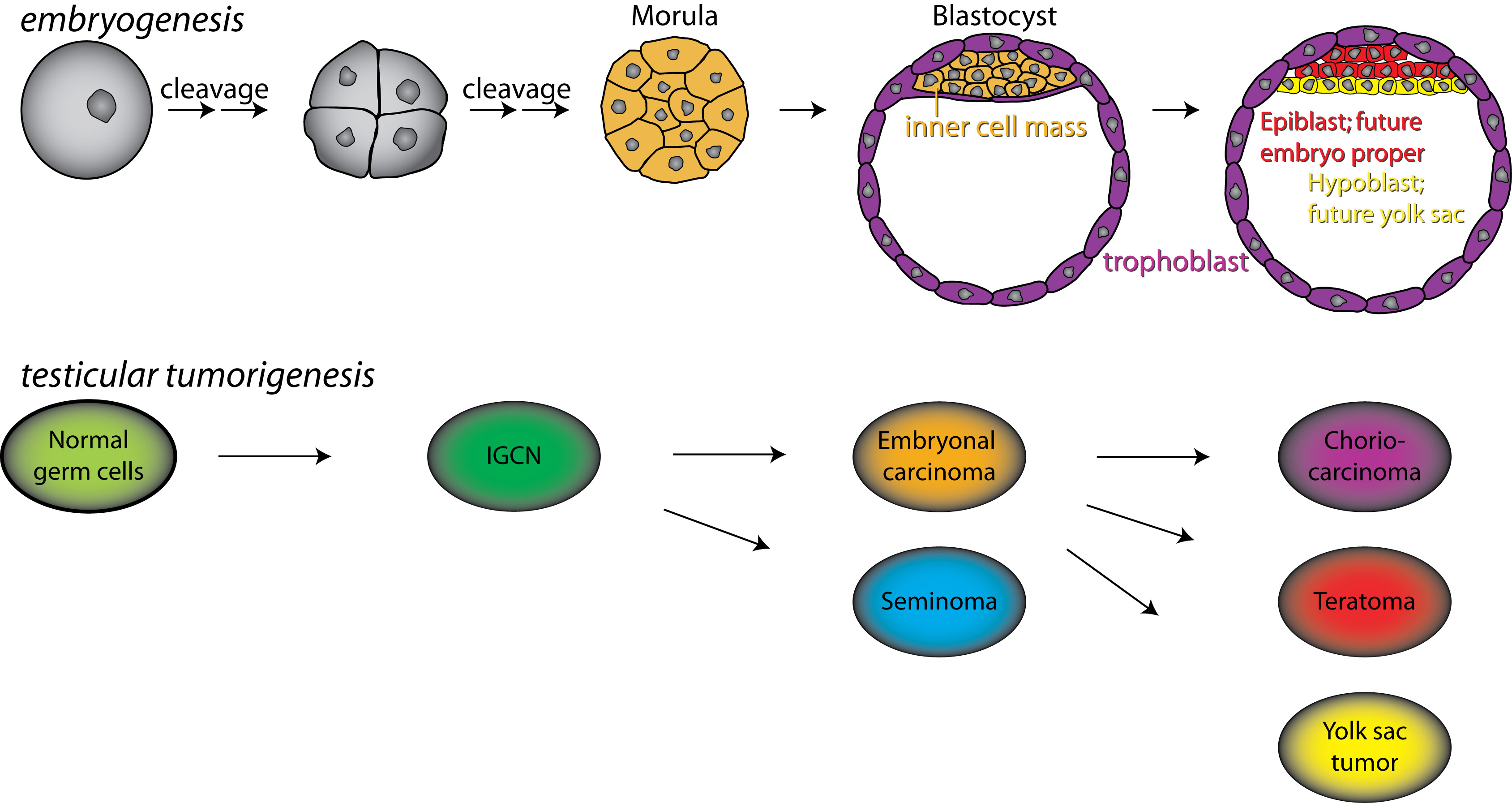Testicular cancer: Tumour stem cells, etiology and effects after chemotherapy
Tumour stem cells and germ cell cancer
(A) Comparisons of embryonal carcinomas and embyronic stem cells (Figure and text below).
(B) Genetic risk and long-term effects of treatment as assessed from genotypes in DNA repair genes in germ cell tumour patients.

Embryonal carcinoma (EC) cells, found in certain testicular germ cell tumours (TGCTs), represent a striking paradigm for malignant cells with stemness properties. Their pluripotent state allows them to self-renew, as well as differentiate, to give a disorganized array of cell and tissue types. EC cells are morphologically similar to embryonic stem (ES) cells, and the two also share cell surface markers and overall gene expression programmes.
Overall, this imply that ES cells can be considered the non-malignant counterpart of EC cells, providing the rare situation where the "normal" counterpart of a cancer cell with stemness properties is readily accessible, and can be observed through its progression to the malignant state.
By comparing gene expression of EC and ES cells across the genome at high resolution, we aim to gain insight into the role of stem cells in the development and progression of TGCTs, in particular, and cancer in general.
Genetic variation among testicular cancer patients; predisposition, chemotherapy response and long term toxicity
Testicular germ cell tumors (TGCTs) are the most common tumors among young men, aged 15-45 years. The TGCTs are histologically classified as seminomas and nonseminomas, both believed to originate from a common precursor known as intratubular germ cell neoplasia.
Fortunately, these tumors respond well to cisplatin. More than 95% of all patients and above 80% of patients with metastasis are cured using platinum based chemotherapy. However, some patients are troubled by side effects and long term toxicities of their treatment and also some tumors do not respond to treatment. Based on previous studies of TGCTs, we have selected a number of candidate single nucleotide polymorphisms (SNPs) to be profiled among the TGCT patient population.
We aim to discover if these genetic variations could be involved in and/or contribute to predisposition and development of TGCTs, influence the tumors' response (cure or relapse) and the patients' response (long term side effects/toxicities) to treatment. We hope to identify SNPs that may be applied for more individualized diagnostics and therapy selection, and prevention of TGCT.
The research project is run jointly between the Molecular Genetics Group and the Genome Biology Group.